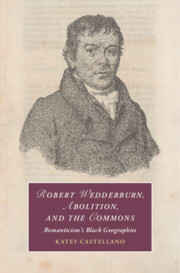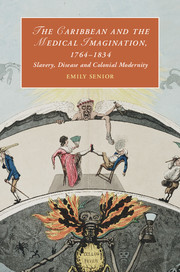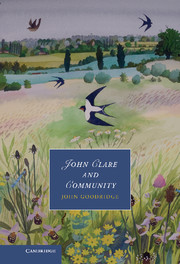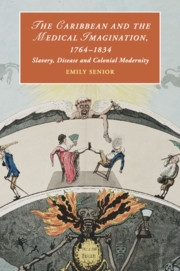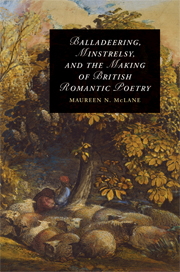Robert Wedderburn, Abolition, and the Commons
Building on scholarship in Romanticism, Black studies, and environmental humanities, this book follows the political thought of Robert Wedderburn, a Black Romantic-era writer. Wedderburn was deeply influenced by his enslaved mother and grandmother, who raised him in Jamaica. After migrating to London, he became a key figure in ultraradical circles and was prosecuted by the British government for blasphemous libel. Wedderburn's vision for abolition from below sought to forge a transatlantic alliance between English agrarian radicals and enslaved people in the Caribbean. Instead of emancipation administered by British colonial and commercial interests, Wedderburn championed the ecological projects of enslaved and Maroon communities in the Caribbean as models for liberation. His stories of Black, place-based opposition to slavery provide an innovative lens for rereading significant aspects of the Romantic period, including the abolition of slavery, landscape aesthetics, and nineteenth-century radical politics.
- Interdisciplinary in approach, bringing together scholarship in Romanticism, Black studies, and environmental humanities
- Centers the work of a Black writer and activist within Romantic print culture, responding to an urgent call in 21st-century literary studies
- Uses Robert Wedderburn's political thought as an innovative lens for reading Romantic-era political prose, slave narratives, and travel writing
Product details
January 2025Hardback
9781009523905
242 pages
234 × 159 × 18 mm
0.5kg
Available
Table of Contents
- Introduction: Robert Wedderburn, romanticism, and black geographies
- 1. Against private property: Wedderburn's the axe laid to the root
- 2. From plantation to prison: Wedderburn's the horrors of slavery and London's radical press
- 3. Black women's abolitionist geographies in the horrors of slavery and the history of Mary prince
- 4. Provisions and pigs: black geographies in Matthew Lewis's journal of a west India proprietor
- 5. Maroon settlements as abolitionist commons: nanny of the maroons, R. C. Dallas's history of the maroons, and J. G. Stedman's narrative of a five years' expedition
- 6. Emancipation as the enclosure of 'waste fertility': Thomas Carlyle's rage against pumpkins
- Conclusion / Wedderburn's last word: abolition with pigs, pumpkins, and yams
- Notes
- Bibliography
- Index.

